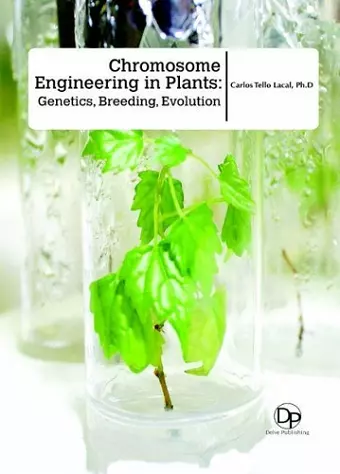Chromosome Engineering in Plants
Genetics, Breeding, Evolution
Format:Hardback
Publisher:Delve Publishing
Published:30th Nov '16
Should be back in stock very soon

The generic term “chromosome engineering” encompasses a set of biotechnological procedures in which chromosome features are manipulated to change their structure and mode of genetic inheritance. The employment of these technologies can enormously facilitate and accelerate the mapping of plant genomes, the analysis of gene functions and ultimately the development of plant breeding programs. Additionally, the study of chromosome biology and genome structure allows a broadened view of plant species evolution. In this book, a wide range of peer-reviewed research papers fully covering the above-mentioned topics have been compiled.
Chapter 1 focuses on plant chromosome segregation during meiosis and describes the events taking place, as well as the molecular factors involved. In Chapter 2, the de novo construction of a maize minichromosome is reported and its potential applications in plant biotechnology are discussed. In Chapters 3 and 4, genome editing in plants through the respective employment of zinc finger nucleases and the CRISPR/Cas9 System are analyzed. In the following block of five chapters, we review the application of chromosome engineering technology to genome analysis and functional genomics. Chapter 5 examines the main tools allowing an in-depth analysis of polyploid genome structure and gene expression. In Chapter 6, the construction of BAC libraries and their application in genome physical mapping are described. Chapter 7 depicts the genome structure and evolution analysis of three Brachypodium distachyon cytotypes by employing the chromosome painting technique. Chapter 8 describes the use of the enhancer trapping system in gene identification, illustrated by the characterization of the rice oscdm1 mutant. Chapter 9 shows the development of a TILLING by sequencing method in peanut in order to identify mutations in selected loci. The next four chapters investigate practical applications of chromosome engineering in crop breeding. In Chapter 10, the obtaining of new Brassicaceae amphidiploid, alloplasmic, gene integration, chromosome addition and chromosome substitution lines by chromosome engineering methods is presented. In Chapter 11, the manipulation of the Arabidopsis histone CENH3 to produce haploid plants is shown. Similarly, Chapter 12 features the generation of doubled haploid triticale plants for their application in modern breeding programs through microspore embryogenesis. Chapter 13 describes a comparative mapping study between sugarcane and sorghum providing new information on the sugarcane genome structure and revealing the presence of chromosome rearrangements...
ISBN: 9781680958973
Dimensions: unknown
Weight: unknown
258 pages